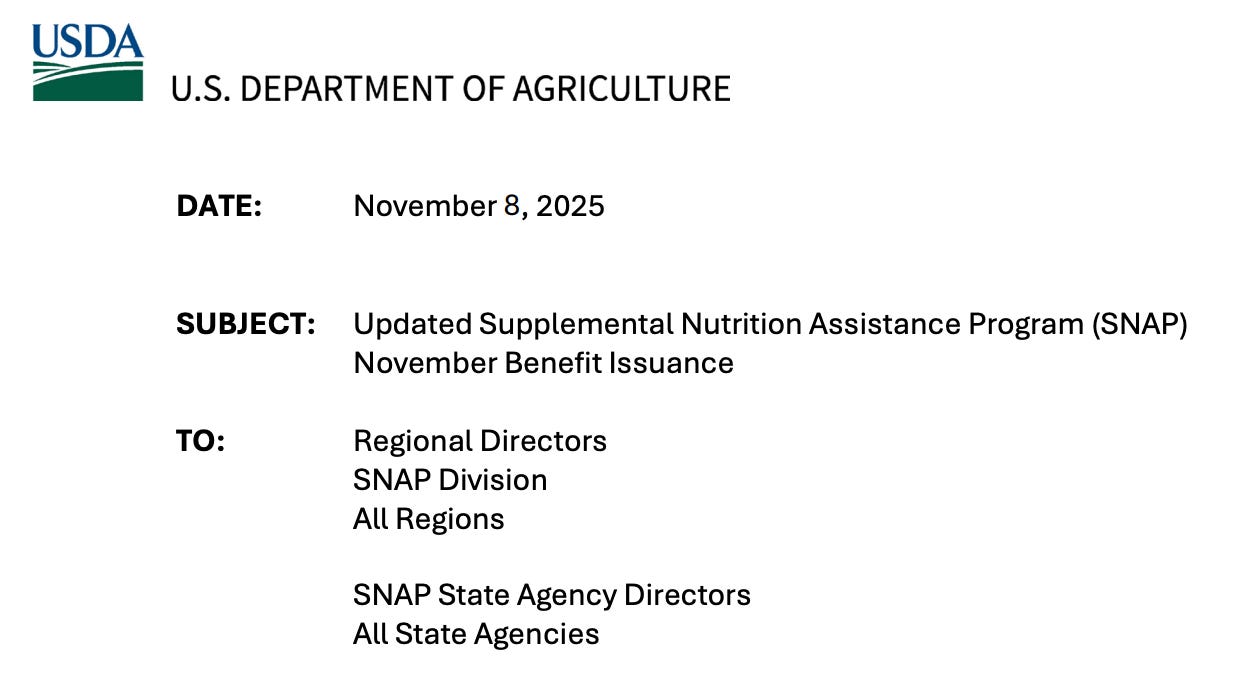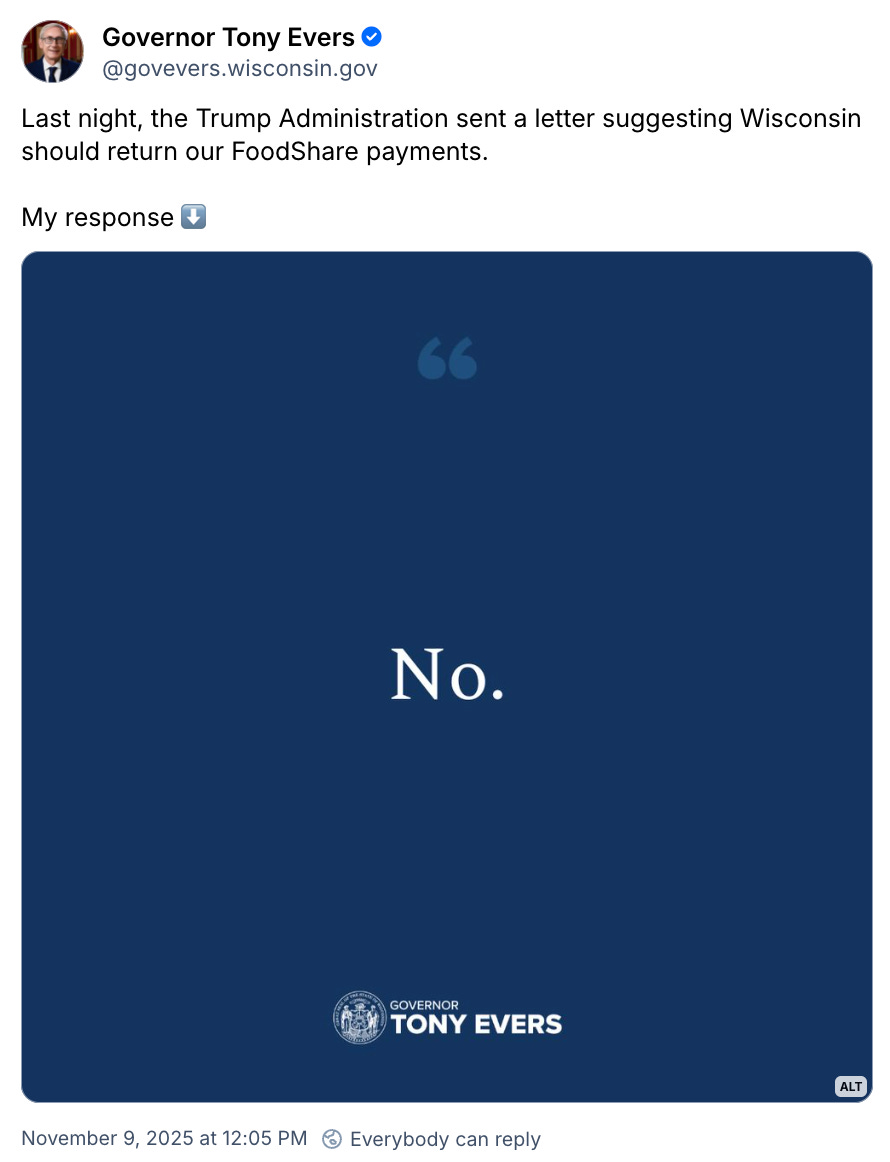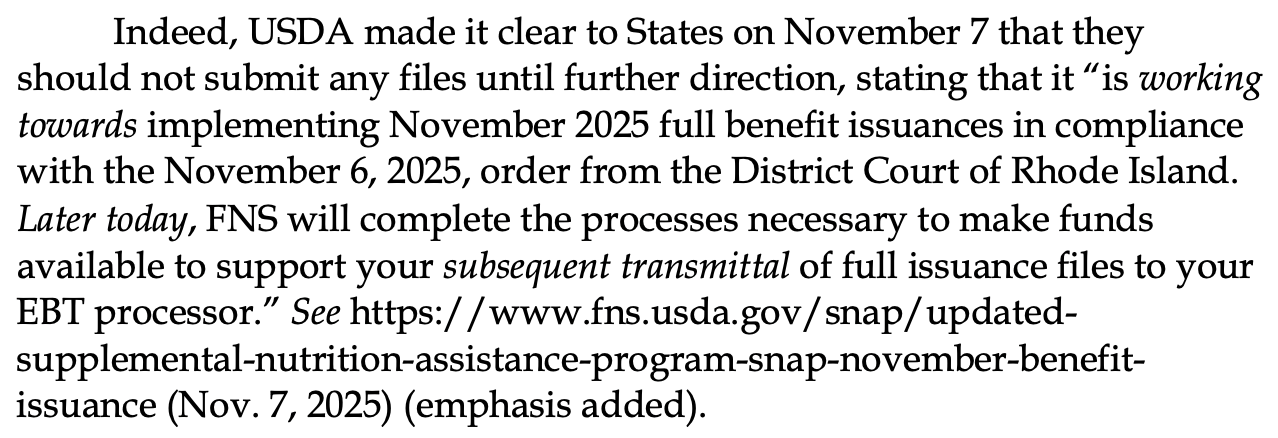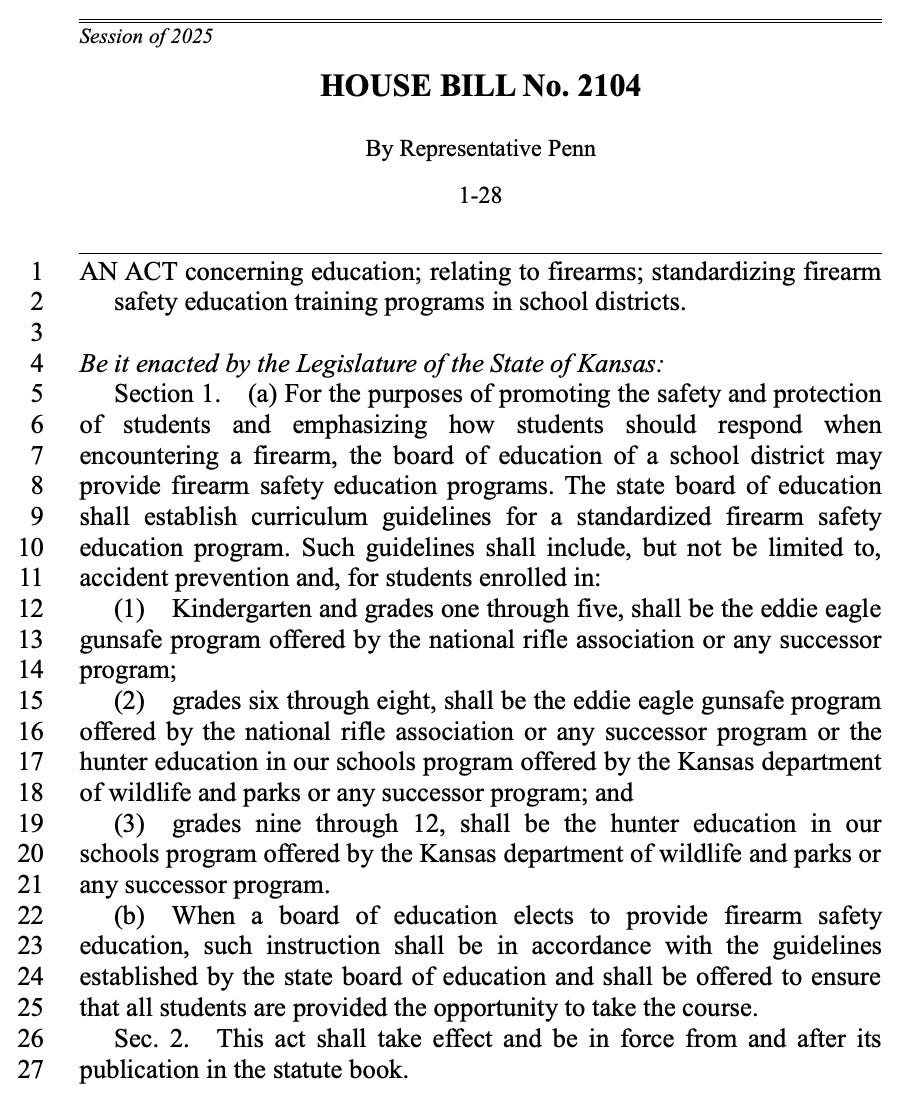DOJ says full SNAP payments were "unauthorized," as USDA directs states to "undo" them
A week of chaotic change-ups as food benefits for more than 40 million people hang in the balance. And, for paid subscribers: Closing my tabs.
A Justice Department lawyer told a federal appeals court on Sunday that states that began sending full SNAP benefit payments out on Friday were “unauthorized” in doing so and cited a federal regulation setting forth penalties for states that fail to comply with federal directives in carrying out the federal program.
The Sunday filing was the latest chaotic change-up in the administration’s approach to the monthly food benefit payments that help feed more than 40 million people — leaving uncertainty about November benefits nearly 1/3 of the way into the month.
The Trump administration, which initially sought to stop the payments altogether for November, has faced a pair of lawsuits and shifting orders as it kept fighting to pay out smaller amounts of benefits, leading to a chaotic, patchwork distribution of benefits.
As the filing was being submitted in one of the lawsuits, on appeal at the U.S. Court of Appeals for the First Circuit, state officials began responding as news spread that the U.S. Department of Agriculture sent a letter to states on Saturday directing them to “undo” any full SNAP benefit payments that had been made for November or risk facing the penalties.
The Saturday letter came a day after an earlier USDA letter told states that federal officials were working to complete processing of payments for “full” benefits.
The latest letter from Patrick Penn — the Deputy Under Secretary of Food, Nutrition, and Consumer Services — stated that the change was based on the administrative stay issued by Justice Ketanji Brown Jackson on the night of October 7. In relevant part and based solely on the administrative stay — which Jackson made clear is temporary — the states were told:
Pending any explicit direction to the contrary from Food and Nutrition Service (FNS), States must not transmit full benefit issuance files to EBT processors. Instead, States must continue to process and load the partial issuance files that reflect the 35 percent reduction of maximum allotments detailed in the November 5 guidance.
To the extent States sent full SNAP payment files for November 2025, this was unauthorized. Accordingly, States must immediately undo any steps taken to issue full SNAP benefits for November 2025.
The letter then cited the federal regulation that lays out penalties and said the provision could be applied to the states for “failure to comply” with Saturday’s directive to “undo” any full benefits paid.
The past 10 days have featured significant confusion — and aggressive pushback by the Trump administration. After both courts hearing challenges to the administration’s plan to cut benefits completely found that the move was likely illegal, the administration sought only to partially fund this month’s payments. The Justice Department told federal courts that USDA would use the SNAP contingency fund but not any Section 32 USDA funds to make November payments. The Trump administration first said that amounted to 50% of payments, but then corrected it to say that it would be 65% of payments.
This led to further litigating, resulting in a Thursday order from U.S. District Judge John McConnell that the administration fully fund the payments — including by using Section 32 funds.
Under a Friday letter that follow from Penn, he told the states:
FNS is working towards implementing November 2025 full benefit issuances in compliance with the November 6, 2025, order from the District Court of Rhode Island. Later today, FNS will complete the processes necessary to make funds available to support your subsequent transmittal of full issuance files to your EBT processor.
Although the letter also noted that he would keep states “up to date” on “any future developments and appreciate your continued partnership to serve program beneficiaries across the country,” Penn did not suggest, let alone warn states, that a penalty-linked reversal of the “full benefit” plans was possible.
Following Jackson’s administrative stay — which she stated was to give time for the First Circuit to decide quickly whether McConnell’s order should be stayed throughout DOJ’s appeal — Penn did just that, ordering the reversal and citing the penalty provision.
In Sunday’s filing, the Justice Department went even further than Penn did in his Saturday letter. Laura Myron, an attorney at DOJ who has worked there for the past decade and started as a Bristow Fellow, told the First Circuit that Friday’s letter “made it clear to States“ that that they shouldn’t submit full benefit payments.
“USDA is aware that certain States have submitted payment files for full November benefits,” she wrote. “This was unauthorized.“
Here is how Myron claimed that:
It’s never a good sign when you need to use italics multiple times to show that something is clear.
[Update, 2:30 a.m. November 10: The states suing went to court Sunday night over the administration’s weekend threats:
More to come on Monday.]
Penn, the man responsible for these letters, had never worked in federal government outside of the military until Trump appointed him in May. His only experience in state government was less than five years as a member of the Kansas House of Representatives. According to his bio, Penn was raised in foster care and is a U.S. Army veteran who later worked for Textron Aviation Defense, a Defense Department contractor.
He was a Republican state House member in Kansas before taking his job in the Trump administration, having received 6,870 votes in his 2024 re-election.
As the Kansas Reflector reported upon the announcement of his new position, “He was first elected to the Kansas Legislature in 2020, where he was dedicated to pushing Second Amendment legislation, including repeated attempts to pass a firearm education program bill.“
Yes, the main legislative effort — not a bill that passed, mind you — of the man who spent his weekend ordering states to “undo” SNAP payments was a bill to put National Rifle Association gun safety courses in Kansas schools.
This is the second Trump administration.
Closing my tabs
For those who don’t what this is, it’s my effort to give a little thank you to paid subscribers. “Closing my tabs” is, literally, me looking through the stories and cases open — the tabs open — on my computer and sharing with you all some of those I was unable to cover during the week but that I nonetheless want to let you know that I have on my radar. Oftentimes, they are issues that will eventually find their way back into the newsletter as a case discussed moves forward or something new happens that provides me with a reason to cover the story more in depth.
This Sunday, these are the tabs I am closing:







